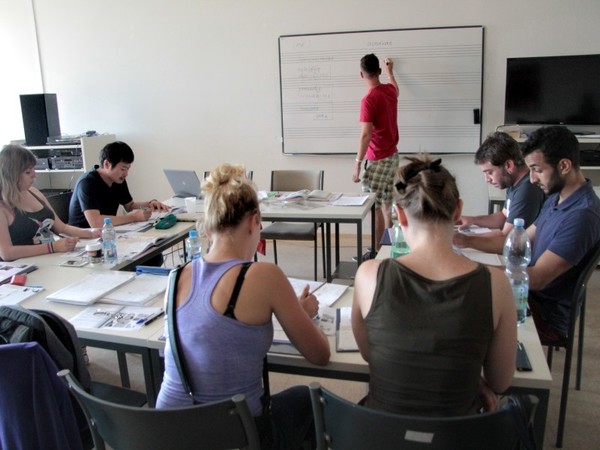More than one hundred students from twenty-three countries will study Czech at Palacký University this year in the Summer School of Slavonic Studies, held at UP’s Arts Centre. In its 31st year, the school includes a seventy-three-year-old male student from the USA and a sixteen-year-old female student from China.
This year almost half of the students are paying fees, while the rest receive a stipend from the Czech Ministry of Education. Traditionally, students of Czech and Slavonic studies are interested in learning Czech, but students are also recruited from the ranks of translators. And every year there are students whose family ties are Czech, those who want to study in Czechia or who are already studying here. And there are those who need a knowledge of Czech for professional reasons.
“The largest group this year is from Germany, with nineteen students. There is also big interest in Czech from Taiwan, with twelve students. Traditionally we have great interest from students from France, Poland and Japan,” said Petr Pořízka, the summer school’s director.
According to Pořízka, the teaching of Czech will be divided into five levels, from complete beginners to very advanced. The morning session is comprised of five teaching hours, including conversation. The language course is later supplemented for example by lectures on the Czech language, literature, and history, taught in Czech or English, sometimes bilingually. For those interested, the school also offers supplemental courses in Russian and Polish.
This year’s school boasts twelve lecturers in Czech, one in Russian, and one in Polish. “We also have a popular phonetics course on proper pronunciation. And we offer students workshops in translation, conversation, and grammar,” added Pořízka. And there are video projections of Czech films with English subtitles with commentaries on the films, their creators, and actors.
Weekends are dedicated to field trips to historic or culturally important places in Bohemia and Moravia. This year, students travelled to Rožnov pod Radhoštěm, which has the largest and oldest open air museum in Central Europe. Another weekend will be spent in Prague and Český Krumlov, including a visit on the way back to the Museum of World Records and Curiosities in Pelhřimov and the chateau in Telč. The last trip will be to the industrial complex of the former steel mill in Dolní Vítkovice in Ostrava.
“This year we are preparing again a week-long theatre workshop with actors from the Moravian Theatre, ending with a performance. We’re also planning a folklore evening with dulcimer music, where people will learn the polka and other dances and folk songs,” Pořízka stated.
The Summer School of Slavonic Studies offers foreign students courses in Czech and other Slavic languages, especially Russian and Polish. Course graduates receive a certificate based on a final exam of their language level, and credit for a course in lifetime learning from Palacký University, corresponding to one semester of Czech language study. The school is run annually by the Faculty of Arts of Palacký University, and is now in its 31st year, taking place from 22 June to 20 August.
